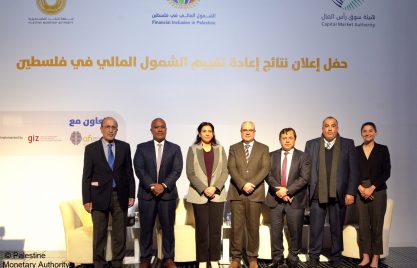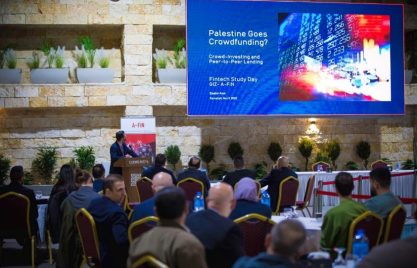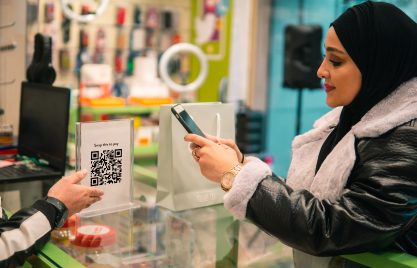Coffee shops. Shisha bars. Mobile Wallets. Mobile payments might seem like a lifestyle product at first sight. They have, however, proven potential to support financial inclusion and in turn economic development. How is GIZ in Palestine enabling that potential?
Mobile payments are not a lifestyle product, they have a proven potential to support the economic development of development countries. The GIZ project A-FIN is in Palestine to enable that exact potential: Next to supporting the development of Palestine’s emerging digital payments ecosystem it just started its new component to facilitate the usage of these payment solutions in relevant development sectors.
To better understand the potential of digital payments to promote sustainable economic development it is important to understand its linkage to financial inclusion. In practice financial inclusion is all about increasing the access to useful and affordable financial products and services that meet the needs of the unbanked population and then ensuring their responsible use. Financial inclusion is both recognized as a driver for several SDGs and an important prerequisite for reducing poverty and increasing prosperity. And Palestine has immense potential to include people as well as businesses through appropriate financial services, thus promoting sustainable economic development.

Digital payments including mobile wallets can contribute to financial inclusion by supporting a wide range of use cases: Well-designed, interoperable wallets are usually cheaper than normal bank accounts and there is no need to own a bank account to open one. Therefore, everyone can own a mobile wallet and in turn be enabled to send payments from and receive payments into their mobile accounts; they can also be used to store funds.
But not only that.
Especially during the ongoing COVID-19 crisis and in Palestine, where a large part of social assistance interventions, salaries, home and business utilities as well as goods and services are usually being paid in cash, mobile wallets can be used to ensure their transfer properly and the continuity of businesses. Mobile wallets can also serve as an efficient payment solution for on- and offline marketplaces for home-based entrepreneurs as well as to allow the development of new e-commerce markets for small- and micro-enterprises, who could otherwise not afford traditional services through banks.
For an economy that receives large amounts of remittances and at the same time faces high transfer fees and inconvenient transfer methods including through public transportation, mobile wallets have the potential to make these transfers more secure, more efficient, and cheaper for all. Further relevant use cases for Palestine include money transfers for aid assistance and the digitalization of development initiatives such as cash for work or cash for training programmes.
What at second sight might seem straightforward faces however some challenges. For the above-mentioned use cases to work there is a need to raise awareness and educate the population and businesses about the benefits of mobile wallets, so next to being available they are also being used. In addition, the emerging digital payments ecosystem needs an enabling regulatory framework and a well-functioning infrastructure. By facilitating these use cases and tackling the challenges, A-FIN is eager to contribute to thriving forward the potential of mobile wallets for sustainable economic development in Palestine.
By Sofia Bublatzky
Sources:



